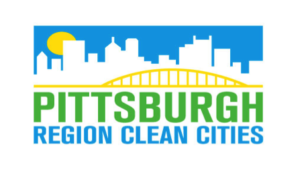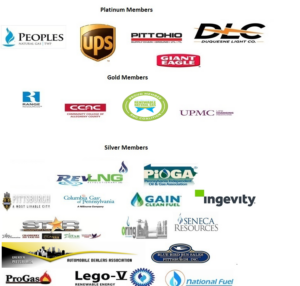by Jeff Twardy | Jun 24, 2017 | Articles
The Next Generation of Transportation Heinz History Center | July 10, 2017 | 6 p.m. | Free admission and parking 4:30-8:30pm Hear about advances in transportation technology, not just to get us where we want to go, but also to reduce greenhouse gases, improve air quality, and support the region’s economic development. ALSO: Be sure to check out the alternative vehicles we’ll have on display outside of the History Center. PANEL INCLUDES: David Shribman Executive Editor, Pittsburgh Post-Gazette Peter Rander Carnegie Mellon grad and former engineer at Uber who co-founded Argo AI, the autonomous car start-up based in Pittsburgh that is partnering with Ford Richard Price Executive director of Pittsburgh Region Clean Cities known for his work with alternative fuel vehicles Costa Samaras Engineering professor at Carnegie Mellon and transportation/autonomous vehicle expert with CMU’s Scott Institute for Energy Innovation Lisa Ecola Transportation planner with RAND Corporation focused on mobility trends and the intersection of transportation with climate policy Miguel Guerreiro CEO and founder of startup Blue Gas Marine that developed a technology system enabling boats to run on natural gas instead of diesel Guests can register at: promo.post-gazette.com/energy2017 or...
by Jeff Twardy | Jun 11, 2017 | Articles, CNG
Energy Evolution 2017 Pittsburgh Energy Forum Series Monday, July 10 | Heinz History Center | 6:00 pm | Free admission 4:30 – 8: 30 p.m. Alternative fuel car display and test drives outside! To attend, register below or call 412-263-3850 Register: http://promo.post-gazette.com/energy2017 FREE PARKING AT HISTORY CENTER LOT ON SMALLMAN STREET MODERATOR: DAVID SHRIBMAN Executive Editor, Pittsburgh Post-Gazette RICHARD PRICE Executive Director, Pittsburgh Region Clean Cities COSTA SAMARAS Engineer and transportation expert, Carnegie Mellon Scott Institute for Energy Innovation PETER RANDER Founder, Argo AI (in partnership with Ford) and former engineer at Uber LIISA ECOLA Policy analyst and transportation planner, RAND...
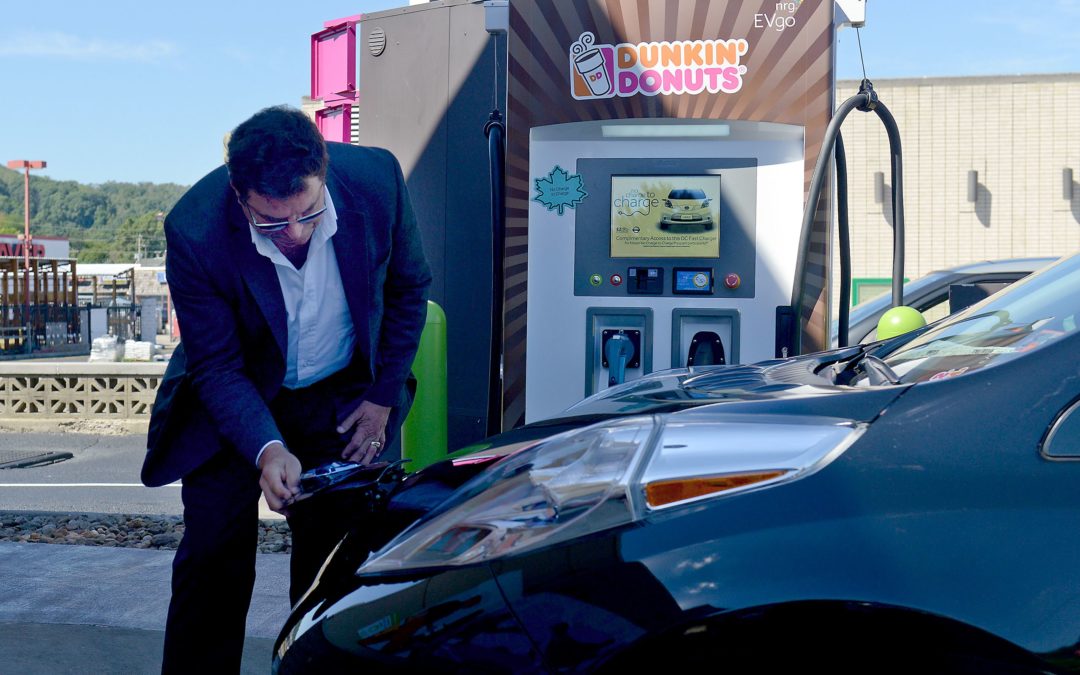
by Jeff Twardy | May 20, 2017 | Articles
From Pittsburgh Post-Gazette PowerSource Pennsylvania regulators are no strangers to what happens when new technology meets old regulations. Uber, anyone? This time, it’s electric vehicle charging stations, an emerging industry trying to find its footing and an economic model in Pennsylvania. In an effort to encourage the growth of the industry, at least one utility — Pittsburgh-based Duquesne Light — is allowing charging station operators to resell its electricity, sometimes at a substantial markup. The Pennsylvania Public Utility Commission announced this week that it is exploring how electric utilities should treat these charging stations, which pull electricity from the grid and redistribute it to a number of clients. One thing the agency wants to know is if the model developed by Duquesne Light should serve as a model for a state standard. While gasoline stations have about a century’s head start, the electric car charging stations are just moving from people’s garages to more commercial spaces in Pennsylvania. It may be a while before signs pop up on the corner advertising a price per kilowatt hour. The Pittsburgh utility is the only one in Pennsylvania that has a specific policy for electric vehicle charging stations — it excuses them from regulations that say a customer can’t resell or redistribute the utility’s product. Those prohibitions were designed to prevent situations like a landlord charging tenants different rates than what a utility would charge. But a few years ago, when a company called the Blink Network wanted to put an electric vehicle charging station into the Oakmont service plaza on the Pennsylvania Turnpike, Duquesne Light had to make a decision —...
by Jeff Twardy | Apr 23, 2017 | Articles
EPA is announcing $11 million in competitive grant funding for the Diesel Emissions Reductions Act (DERA) Clean Diesel Funding Assistance Program. The Program is soliciting proposals nationwide for projects that achieve significant reductions in diesel emissions in terms of tons of pollution produced and exposure, particularly from fleets operating in areas designated by the Administrator as poor air quality areas. Proposal packages must be submitted electronically to EPA through Grants.gov (www.grants.gov) no later than Tuesday, June 20, 2017, at 11:59 p.m. (ET) in order to be considered for funding. Please read more here:...
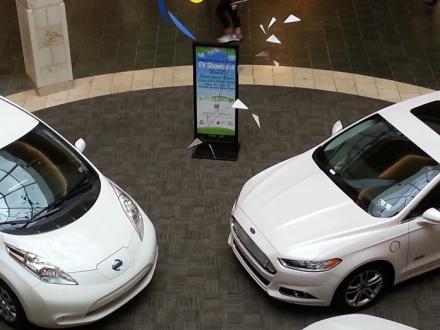
by Jeff Twardy | Nov 24, 2016 | Articles
Answer: Heavy-duty vehicle idling, or running a vehicle’s engine while it is not in motion, occurs for a number of reasons, including temperature control during required rest stops, powering electronic equipment, and to avoid cold starting the vehicle. According to Argonne National Laboratory (Argonne), more than 6 billion gallons of diesel and gasoline fuel are wasted by vehicle engine idling—with half from medium- and heavy-duty vehicles alone. Argonne estimated that a heavy-duty long-haul truck generally idles around 6 hours per day, or 1,830 hours per year. Not only does this wasted fuel cost more than $20 billion a year, but it also results in increased emissions of air pollutants, such as oxides of nitrogen, carbon monoxide, and particulate matter. This is particularly an issue for school buses, as these emissions can have harmful health impacts on children. A number of states, counties, and municipalities have implemented vehicle idling restrictions and regulations to address this issue. Idle reduction technologies afford drivers with the same comforts and services offered by engine idling, but are much more fuel efficient. The U.S. Environmental Protection Agency’s (EPA) SmartWay Program and the U.S. Department of Energy (DOE) have evaluated a number of idle reduction technologies for heavy-duty vehicles to identify their fuel reduction benefits. There are two main categories of idle reduction technology: onboard equipment and truck stop electrification (TSE) sites. Onboard Idle Reduction Equipment Onboard idle reduction equipment is installed directly on the vehicle. This technology can help reduce idle time at any location, including roadsides, delivery sites, and truck stops. Examples include auxiliary power units (APUs), which are small diesel-powered generators...
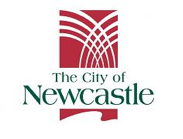
by Jeff Twardy | Nov 24, 2016 | Articles
October 10, 2016. The New Castle Planning Commission, Pennsylvania, gave its blessing to a proposed compressed gas station (CNG) at the city bus garage. The New Castle Area Transit Authority is gradually phasing in vehicles that will be powered by natural gas. The New Castle Planning Commission has given the green light for a conditional use request for a compressed natural gas station to be built at the Mahoning Avenue bus terminal. The planning commission, an advisory board, reviewed the plans on Wednesday. Approval of the request must come from New Castle City Council. Attorney Lou Perrotta, New Castle Area Transit Authority solicitior, said the local authority’s site at 311 Mahoning Avenue was one of 29 transit facilities selected by the Pennsylvania Department of Transportation to operate and maintain a compressed natural fueling station. These facilities will be designed and built — at no cost to the local facility — over the next five years. The New Castle station will be one of seven to include a public fueling facility that will be open to commercial vehicles. Construction is expected to begin next year. The project, using Pennsylvania’s natural gas resources will result in greater efficiencies for transit agencies and will establish a foothold for converted natural gas transportation market. The conversion to compressed natural gas from gasoline or Diesel could save $10 million statewide, Perrotta said. Earlier this year, state officials announced a $84.5 million private-public partnership project to pay for fueling stations and retrofit or replace the transit agencies’ maintenance and storage facilities to make them compatible with natural gas...



